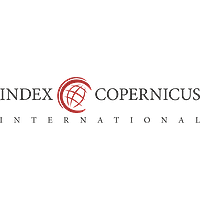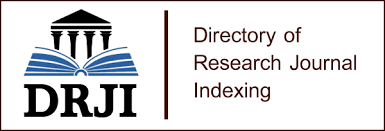TOWARDS A SUSTAINABLE ECONOMY: ECONOMIC INSTITUTIONS AS A CRITICAL FACTOR FOR ECONOMIC GROWTH A CASE OF NIGERIA
Abstract
The paper discusses the importance of economic institutions as critical factor that determine whether a resource rich economy would be successful or not. It elucidates the reasons for differences in economic growth among countries in spite of homogeneous culture, population, and resources. The distinct contribution of a good economic institutions to create market economy which allocate, distribute available resources in efficient way for higher revenue and rent for the benefit of the majority cannot be overemphasized. Factors such as geography, culture and historical antecedent (colonial affiliation) play important role in the life of a nation but not as viable economic institutions. The paper concludes by relating the Nigeria economic problem amidst abundance resources to ineffective institutions. It is incumbent on the political power holders/elite to embark on institutional reforms to take the country out of the wood.
References
cemoglu, D. (2000). Understanding institutions. Institutions, Contracts and Organizations: perspectives …. Retrieved from http://scholar.google.com/scholar?hl=en&btnG=Search&q=intitle:Understanding+institutions#0
Acemoglu, D., Johnson, S., & Robinson, J. (2005a). The rise of Europe: Atlantic trade, institutional change, and economic growth. American Economic Review. http://doi.org/10.1257/0002828054201305
Acemoglu, D., Johnson, S., & Robinson, J. A. (2005b). Institutions as a Fundamental Cause of Long-Run Growth. Handbook of Economic Growth, 1(SUPPL. PART A), 385–472. http://doi.org/10.1016/S1574-0684(05)01006-3
Gylfason, T. (2000). Natural Resources , Education , and Economic Development. In The 15th Annual Congress of the European Economic Association (pp. 2–11).
Igberaese, T., & Hague, T. (2013). The Effect of Oil Dependency on Nigeria ’ s Economic Growth.
IMF. (2008). Regional economic outlook Sub-Saharan Africa.
Kemp, M. C., & Van Long, N. (1984). Chapter 8 The role of natural resources in trade models. Handbook of International Economics. http://doi.org/10.1016/S1573-4404(84)01011-X
Mehlum, H., Moene, K., & Torvik, R. (2006). Institutions and the resource curse. Economic Journal, 116(508), 1–20. http://doi.org/10.1111/j.1468-0297.2006.01045.x
O’Toole, R. (2007). Extending Legal Tender. Business & Finance. Retrieved from http://www.tmcnet.com/usubmit/2007/12/05/3143265.htm
Ohlin, B., & Hecksher, E. (1934). Interregional and International Trade. Political Science Quarterly, 49, 126–128.
Oomes, N. &, & Kalcheva, K. (2007). Diagnosing Dutch Disease: Does Russia Have the Symptoms? SSRN Electronic Journal. http://doi.org/10.2139/ssrn.1001659
Stefan, V. (2007). How (Not) to Measure Institutions. Marburg Center for Institutional Economics, (1990), 83–108.
Todaro, M. P., & Smith, S. C. (2009). Economic Development. Development, 1971, 249–259. http://doi.org/10.1177/089124240001400105
Published
How to Cite
Issue
Section
License
Copyrights for articles published in Journal of Asian and African Social Science and Humanities are retained by the authors, with first publication rights granted to the journal. The journal/publisher is not responsible for subsequent uses of the work. It is the author's responsibility to bring an infringement action if so desired by the author.
Articles published in Journal of Asian and African Social Science and Humanities are published under the Creative Commons Attribution (CC-BY) license, which permits others to distribute, remix, tweak, and build upon your work as long as they credit you for the original creation.
Â














